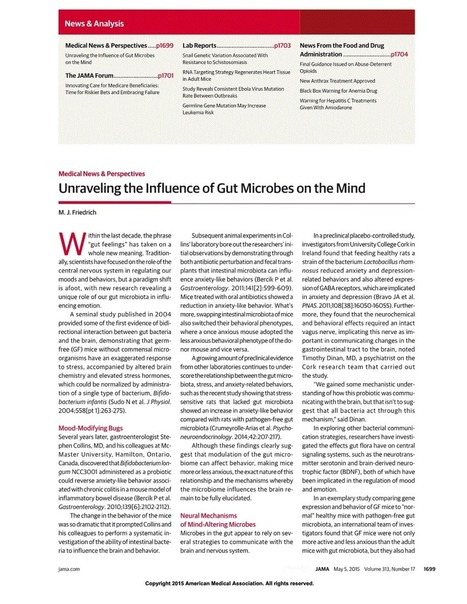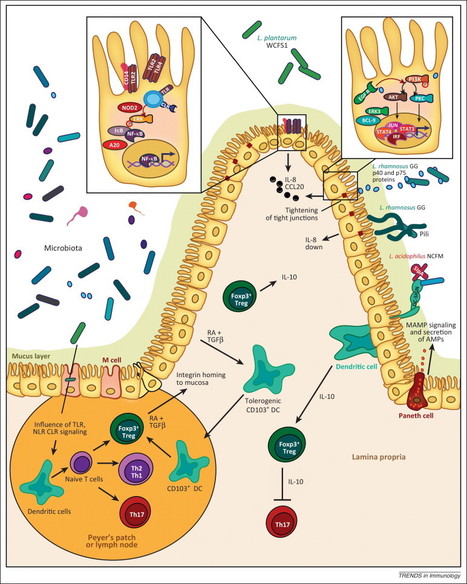Within the last decade, the phrase “gut feelings” has taken on a whole new meaning. Traditionally, scientists have focused on the role of the central nervous system in regulating our moods and behaviors, but a paradigm shift is afoot, with new research revealing a unique role of our gut...
Research and publish the best content.
Get Started for FREE
Sign up with Facebook Sign up with X
I don't have a Facebook or a X account
Already have an account: Login

Resources and Material for Lecturers and Students - Immunology (University level)
Curated by
Alfredo Corell
 Your new post is loading... Your new post is loading...
 Your new post is loading... Your new post is loading...
|
|











A seminal study published in 2004 provided some of the first evidence of bidirectional interaction between gut bacteria and the brain, demonstrating that germ-free (GF) mice without commensal microorganisms have an exaggerated response to stress, accompanied by altered brain chemistry and elevated stress hormones, which could be normalized by administration of a single type of bacterium, Bifidobacterium infantis (Sudo N et al. J Physiol. 2004;558[pt 1]:263-275).